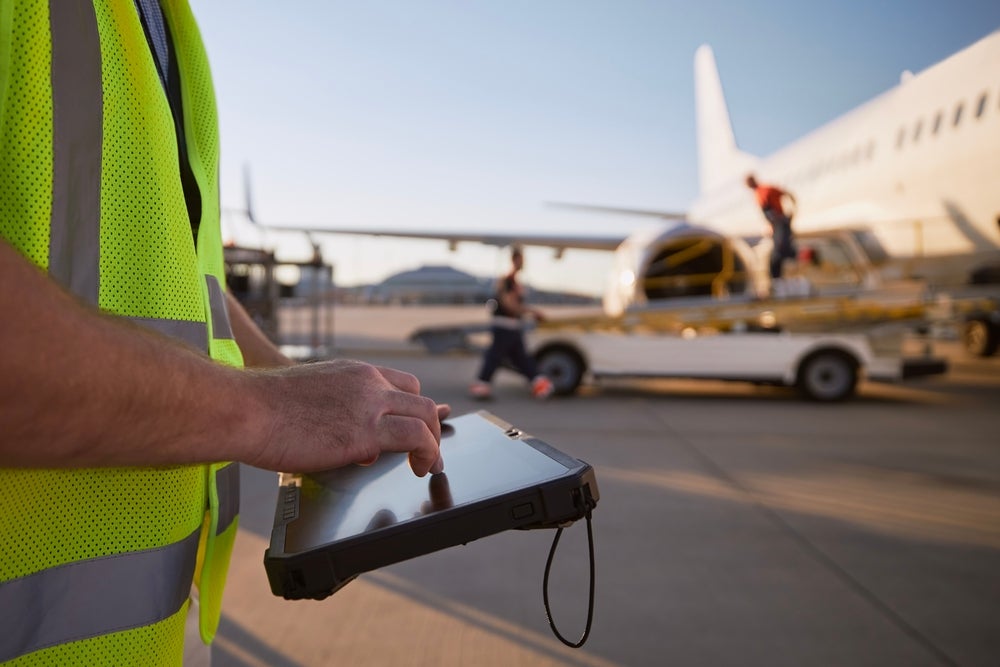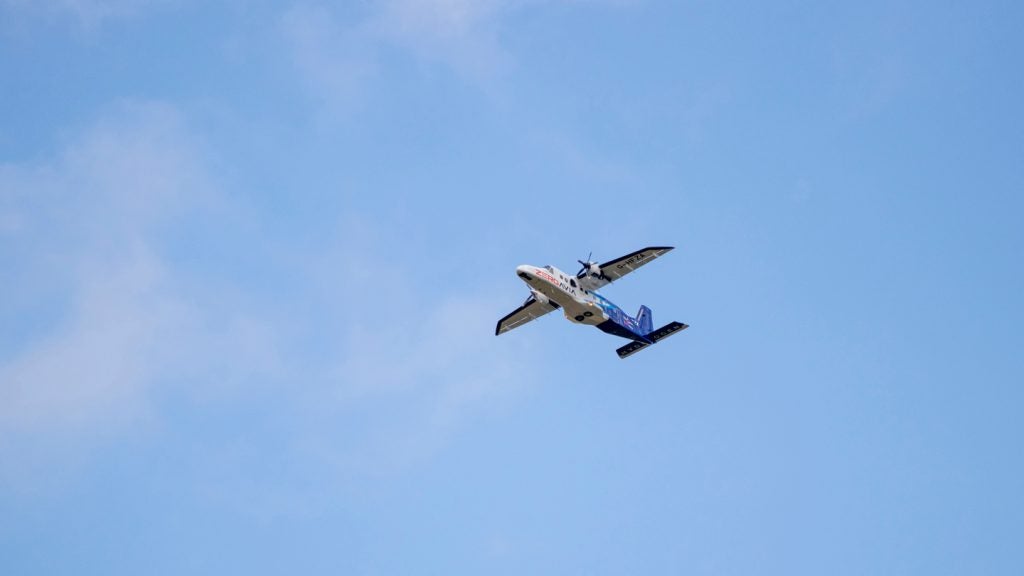In the constantly evolving landscape of global aviation, efficiency and security are paramount – particularly in the face of constant challenges, from higher-than-ever jet fuel prices to labour and equipment shortages, putting pressure on bottom lines. In light of these challenges, blockchain technology is emerging as a game changer for enhancing efficiency and giving airports a competitive edge.
Blockchain is an advanced database mechanism that enables the recording of transactions (both physical and virtual) on an immutable (unchangeable) ledger, shared securely both internally and between these interlinked companies via a user-friendly interface. Ultimately, the result is a seamless exchange of value and a single source of truth that was previously impossible.

The integration of blockchain technology is not merely a futuristic concept but a present reality. Airports such as Heathrow and Zurich are already implementing blockchain-powered solutions, which are redefining cargo management efficiencies and bringing benefits to stakeholders across the sector. It’s not just about adopting the latest technology; it’s about reshaping the very fabric of airport operations, enhancing the journey for millions of passengers.
As we navigate these changes, one thing becomes clear: the future of air travel, underpinned by blockchain, promises not just smoother operations but a reimagined experience for all stakeholders, from airport and airline executives to passengers.
Elevating airport security and fraud prevention
Blockchain’s potential is equally transformative when it comes to security – one of the most constant top priorities on airports’ agendas. The technology’s inherent features – decentralisation, immutability, and transparency – make it an ideal tool for enhancing both customer-side security and cargo integrity.
See Also:
By creating a tamper-proof ledger of transactions and data, blockchain significantly reduces the risks of fraud and counterfeit goods within the cargo supply chain.
How well do you really know your competitors?
Access the most comprehensive Company Profiles on the market, powered by GlobalData. Save hours of research. Gain competitive edge.

Thank you!
Your download email will arrive shortly
Not ready to buy yet? Download a free sample
We are confident about the unique quality of our Company Profiles. However, we want you to make the most beneficial decision for your business, so we offer a free sample that you can download by submitting the below form
By GlobalDataFor passenger security, blockchain offers a robust framework for secure, verifiable identity management and transaction records. This not only streamlines security processes but also enhances the overall security posture of airports, making it more difficult for fraudulent activities to occur.
The Covid-19 pandemic brought to light the aviation industry’s dependence on its customers. Blockchain enables you to make every step of the customer journey smoother and more secure for passengers – from check-in to baggage collection. Blockchain-enabled decentralised identities, for example, can expedite the check-in and security screening processes, reducing wait times and enhancing passenger satisfaction.
What’s more, blockchain enables every transaction in the supply chain to be securely recorded, in real-time, and securely shared. This capability for real-time tracking not only offers passengers peace of mind but also reduces the likelihood of lost cargo drastically, as airlines and baggage handlers can ensure cargo is on its intended route.
This level of transparency and efficiency not only improves the passenger experience but also strengthens trust in airport operations.
Enhancing efficiency and boosting profitability
Despite being adept at managing extensive and intricate data sets, airports are often hamstrung by outdated, paper-reliant processes that are slow and error-prone. This reliance on antiquated technologies and manual, handwritten data logs obstructs transparency and efficiency.
These outdated methods not only slow down tracking but also lead to errors, causing delays in flights and necessitating time-consuming reconciliations. These inefficiencies ultimately lead to unnecessary expenses and diminish customer satisfaction.
Blockchain technology presents a solution to these challenges by enabling real-time data access, not just within the confines of an airport but also amongst partnering entities like airlines and baggage handling services.
This reliance on antiquated technologies and manual, handwritten data logs obstructs transparency and efficiency.
This isn’t just a theory – it’s been put to the test in real working conditions by Aventus in a pioneering project at Heathrow Airport, in collaboration with cargo handling company Airport Perishables Handling (APH). Aventus equipped APH with a mobile application designed for tracking aircraft containers, which digitises the data logging process in a uniform format directly on each ground handler’s smartphone.
This innovation drastically cuts down on manual errors. Furthermore, it allows for immediate data sharing with all relevant parties within a secure network, encompassing the airport, airlines and freight forwarders. The result: significantly streamlined reconciliation process and enhanced operational planning.
The results from Heathrow Airport underscore the impact of blockchain: a 7% boost in productivity, a 28% decrease in loading times and a reduction in human errors by up to 90%.
Blockchain in aviation: the road ahead
As blockchain technology continues to mature, its integration into airport operations is becoming increasingly feasible and attractive. The benefits, from enhanced efficiency and profitability in airside operations to improved customer experiences and heightened security, are compelling.
However, the adoption of blockchain is not without its challenges. It requires a thoughtful approach to integration, with a focus on interoperability with existing systems and scalability to meet future demands.
All airports should start thinking about this journey before their competitors do – but given the nascency of the technology’s application in the industry, the selection of a blockchain partner is critical. The right partner will offer not just technology, but also the expertise and support needed to navigate the unique challenges of the aviation industry. They will provide a scalable, secure platform that can evolve with the airport’s needs, ensuring that the full potential of blockchain can be realised.
As the aviation industry continues to face new challenges and opportunities, the adoption of blockchain stands as a testament to the sector’s commitment to innovation and excellence. For airports, embracing blockchain is not just about keeping pace with technology – it’s about setting a new standard for the future of air travel.








